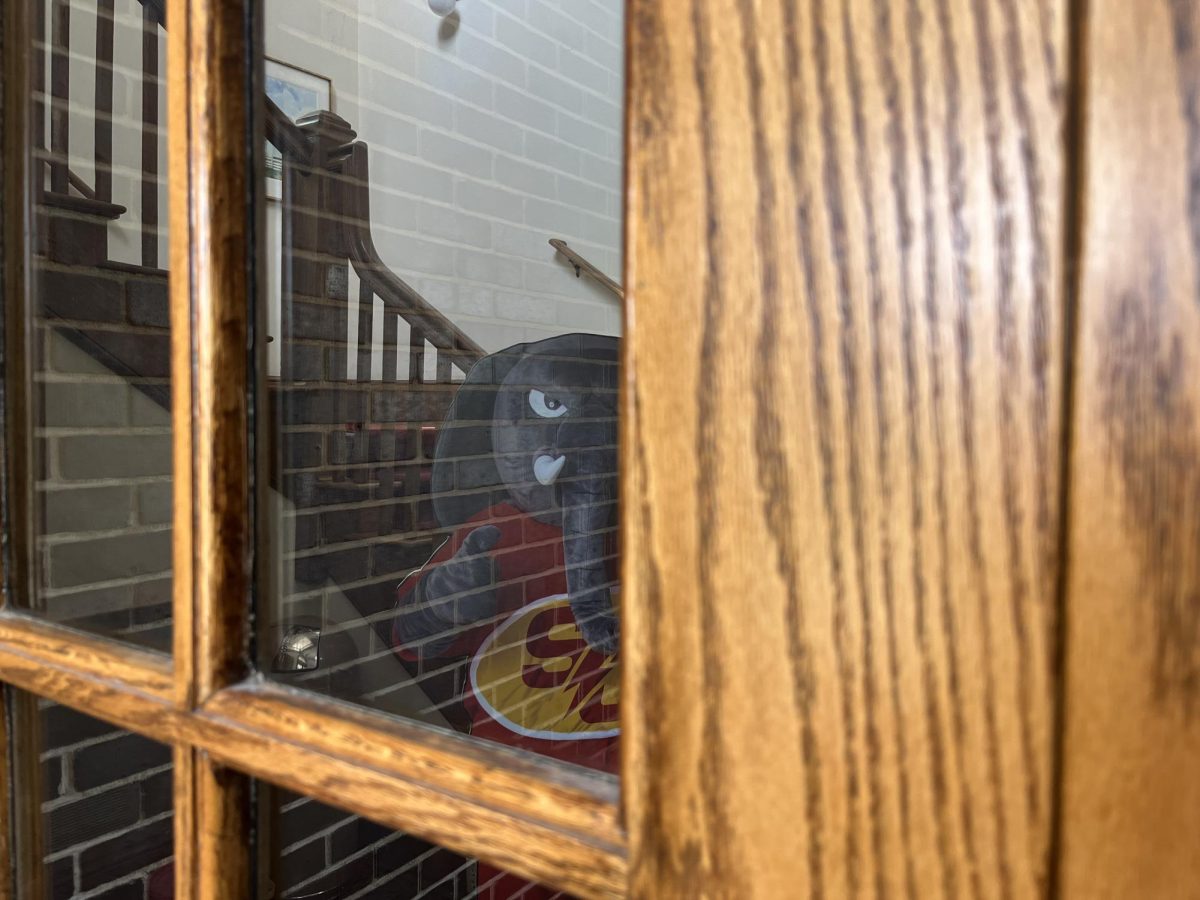Education department has high standards
January 24, 2012
Those who can’t do, teach, but Simpson education students do a lot.
Annual FBI background checks, five gateways to graduation and a minimum 2.75 GPA just to name a few.
“You just get closer and closer to graduating with your gateways, so it just prepares you,” sophomore Kristina Roth said.
“Gateway one, is you saying that you intend to be admitted to teacher education,” said Barb Ramos, associate professor of education. “Gateway two you’re actually fully admitted. Then it progresses at each until five is the recommendation for a teacher license.”
The progression of gateways is a central element of the education curriculum. Another key component of the gateways is spending time in the classroom.
“Simpson has great location for students to have field experience in urban, suburban and rural settings,” Ramos said. “We make sure that every student has a variety of field experiences.”
Variety is important to education students. They appreciate the various classroom settings they experience through Simpson.
“I don’t necessarily want to go into special ed, but I was in the special education classroom several times because it fit into my schedule when I was freshman,” Roth said. “Just seeing them improve and get better at their reading, because I worked with the same kids every time I went, was the best part.”
Simpson’s education students also like that they are able to start working in classrooms from the very beginning.
“I like the fact that you get to go into schools from the very first semester that you’re here, so you get to work with a variety of kids at a variety of different schools,” sophomore Steffanie Elkin said. “You get to see what you want to do, and that’s probably my favorite thing.”
With so much exposure to an assortment of classrooms, education students have a selection of endorsements to choose from. An endorsement is a specialty, such as math or science, which a teacher is allowed to instruct.
“I would say a lot of our students earn two, and some three, and in rare cases people pull off more,” Ramos said.
There are 16 elementary education endorsements and 23 secondary education endorsements available at Simpson.
“Our students actually start education classes the first semester of their first year,” Ramos said. “We have the chance to work with them for four years. If you go to a lot of other schools, especially bigger universities and colleges, you take general education classes for your first two years, and you apply to get into the teacher education program, so you only have two years that you’re really being trained as a teacher.”
Elkin is working on three endorsements with her elementary education major.
“Because I came here on a visit and talked with a professor and they told me that I could get multiple endorsements here and still graduate on time,” Elkin said. “That was a big selling point for me.”
Course loads consisting of gateways and endorsements require more time than many outside of the education department believe.
“The most difficult part of being an education major is the lack of understanding from students from other departments,” sophomore Jessica Ollenburg said. “Being an education major can be a challenge and many of the things we do are very practical and time consuming, even though they appear to be simple and busy work to students who are not education majors.”
The curriculum and gateways some times prove too much for some students to handle.
“There are large lists of requirements that you have to meet to continue on and we do see students that drop out part way through because they know they can’t meet them,” Ramos said. “We have students that we have to counsel out of the program or they’re dismissed from the program because they can’t meet the requirements, so it is a program that isn’t for everyone.”
In order to complete requirements, education students must pass their education classes as well as the classes for their endorsements. Courses for an endorsement are the same as those for the minor or major.
“One of my endorsements is science, so for my sciences I have to have so many hours of chemistry, physics and biology,” Elkin said. “I’m taking the same classes that people would if they’re majoring in those areas, and I think people don’t realize that you take those same classes.”
Unfortunately, Gateways and curriculum can’t prepare Simpson students for everything.
“The most valuable lesson I learned from my education classes and have applied in student teaching is to be flexible,” senior Molly Swenson said. “A teacher can never be prepared for what a student might say or an unplanned fire drill, they just have to ‘go with it’.”





